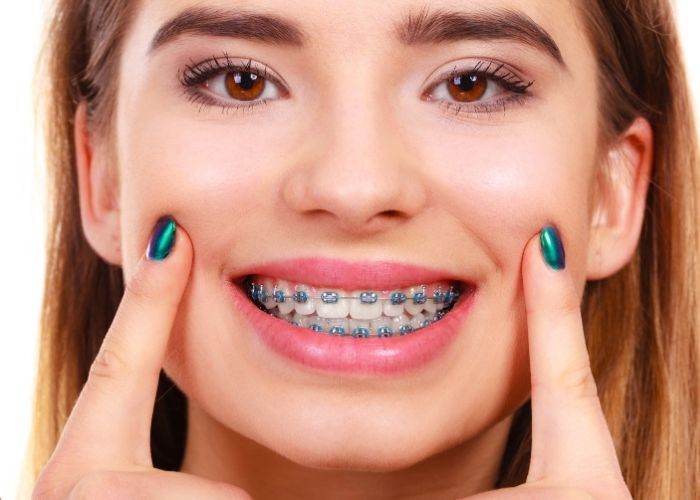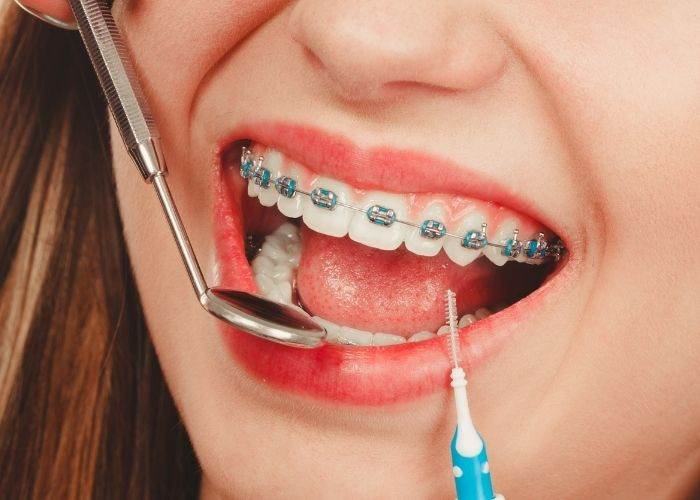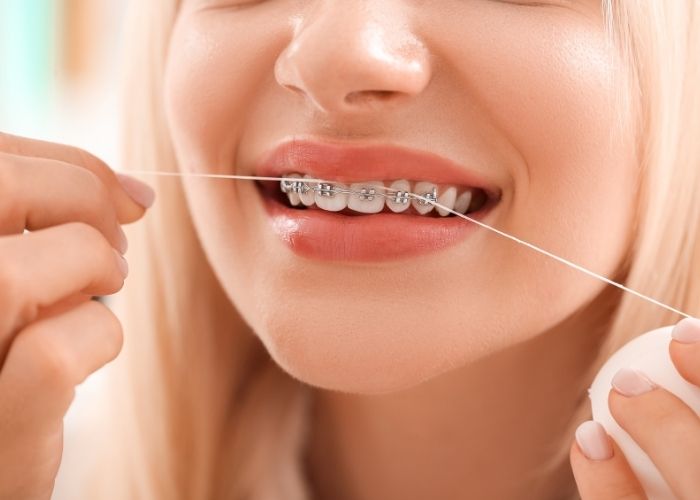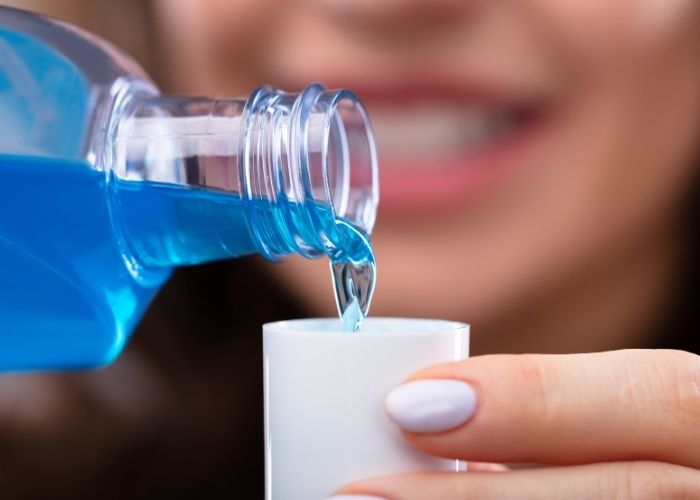Table of Contents
- Introduction to Cleaning and Flossing with Braces
- Daily Brushing Routine for Braces
- Flossing with Braces: Essential Steps
- Enhancing Cleanliness with Mouthwash
- Extra Tools for Cleaning Braces
- Avoiding Common Oral Hygiene Mistakes with Braces
- Tips for Keeping Your Mouth Healthy with Braces
- Conclusion: Maintaining a Healthy Smile During Treatment

Introduction to Cleaning and Flossing with Braces
Braces are a great tool to attain a straight, healthy smile, but they present certain challenges when it comes to oral hygiene. Food particles and plaque can accumulate in difficult-to-reach areas, usually around brackets and wires, so regular cleaning must be an important part of your daily routine. This guide will help you overcome obstacles from braces and help maintain good dental health throughout your orthodontic treatment.
Are you in the New Haven/Shoreline area and concerned your child will need braces?
A free consultation with Dobie Revolution Orthodontics is always available.
Common Challenges of Cleaning Teeth with Braces
- Food Trapping: Brackets and wires protrude from the teeth and easily accumulate food around them.
- Plaque Accumulation: The areas surrounding your brackets are more prone to plaque development, raising the risk of cavities in those areas.
- Limited Access: Traditional teeth cleaning may not be as effective because braces physically limit the reach to smaller crevices.
Time-Consuming Routine: Cleaning teeth with braces takes a little more time and attention due to the difficulty in reaching some areas of your teeth.
Daily Brushing Routine for Braces
Brushing your teeth undoubtedly gets more difficult when you have braces, but it’s still the cornerstone of your oral hygiene routine during your orthodontic treatment. Here are some tips to ensure that your brushing is still effective.

Choosing the Right Toothbrush and Toothpaste
To prevent gum inflammation, use a brush with soft bristles. Clean the tops of the teeth and the spaces between the brackets. Avoid using tough bristles since they may cause the braces to loosen. Interdental or spindle brushes aid in the removal of food material between your teeth and the small gaps beneath wires and brackets.
Use the proper toothpaste, such as one with fluoride or nano-hydroxyapatite to ensure that your teeth stay strong and plaque free. Teeth tend to be more sensitive during orthodontic treatment, so using a sensitivity-formulated fluoride toothpaste can also help.
Techniques for Brushing Around Brackets and Wires
Brush each tooth individually in a circular motion (above the top braces / below the bottom braces), with the toothbrush head angled towards the braces at a 45 degree angle. Continue this for every tooth and make sure to brush all the way to and above the gumline. Brush gently above, below, and around each bracket to remove plaque and food particles. Don’t forget to always use gentle circular strokes which allows for thorough cleaning while protecting bracing from damage.
Frequency and Duration of Brushing for Optimal Results
Orthodontists recommend brushing at least twice a day, but with braces, brushing after each meal or snack is even better. You should always brush for a full two minutes, focusing on the hard to reach areas around the brackets and wires. It is always a good idea to time yourself to make sure that you have brushed for long enough. A thorough nighttime brushing is very important for removing the day's particles before going to bed.
Flossing with Braces: Essential Steps
Flossing with braces means that you have to get in between your brackets and wires in order to get the full effects. This can feel cumbersome for brace wearers, but it’s a critical step in your routine to maintain gum health during your treatment.

Importance of Flossing with Braces
Flossing can reach locations between teeth and under wires that brushing alone cannot. Neglecting this step might result in gum disease, cavities, and issues that may extend orthodontic treatment.
Tools for Easier Flossing (Floss Threaders, Water Flossers, etc.)
- Floss Threaders: These gadgets make it much easier to thread floss under the wires.
- Water Flossers: Using a pressurized water stream, water flossers are a convenient and effective way of removing food and plaque from around the brackets that might get missed while brushing.
- Interdental Brushes: These small, flexible brushes are ideal for cleaning the narrow places around brackets.
Step-by-Step Guide to Flossing with Braces
- Using a floss threader, position the floss underneath the archwire (near the gums).
- Gently move the floss between the teeth, moving it up and down against each side.
- Carefully remove the floss and go on to the next gap, continuing the process for each tooth.
- When using a water flosser, follow the manufacturer's recommendations and direct the stream at a 90-degree angle toward the teeth and gums.
Enhancing Cleanliness with Mouthwash
Mouthwash is a simple maintenance addition to your oral care routine while using braces, as it fills in the gaps for what brushing and flossing may miss.

Benefits of Using Mouthwash with Braces
Mouthwash reduces bacteria, freshens breath, and strengthens enamel. It also reaches places that may be missed by brushing and flossing, adding a "just in case" layer of protection.
Choosing the Right Mouthwash: Anti-Cavity and Antibacterial Options
When choosing a mouthwash, look for options that have fluoride to help strengthen enamel. Alcohol-free antibacterial rinses are effective in killing germs without drying out your mouth.
When and How to Use Mouthwash for Maximum Effectiveness
Use mouthwash at least once a day, ideally after brushing and flossing. Swish the rinse about your mouth for 30 seconds to ensure it touches all areas. For best results, refrain from eating or drinking for 30 minutes afterwards so that the ingredients can take full effect.
try the dobie revolution video game!

Extra Tools for Cleaning Braces
Aside from toothbrushes, floss, and mouthwash, there are a few extra tools that can specifically help brace wearers keep their oral hygiene in check during orthodontic treatment.

Interdental Brushes for Hard-to-Reach Areas
Interdental brushes are great for cleaning areas where normal brushes cannot reach, such as under archwires and between brackets. Their small, flexible bristles are designed to be precise and effective.
Using Water Flossers as an Alternative to Traditional Flossing
Water flossers are very beneficial to those who struggle with traditional flossing and getting the floss under wires. They clean effectively around brackets and wires while providing gentle cleaning on sensitive gums.
Avoiding Common Oral Hygiene Mistakes with Braces
Proper care is not only about what you do for your oral cleaning routine, but also what to avoid and be cautious of not doing.
Over-brushing and Damage to Braces
Brushing harshly or with a firm-bristled brush may break down enamel and potentially loosen your braces. For best results, use delicate circular strokes with soft bristles.
Using Abrasive Toothpaste
Toothpaste that contains abrasive ingredients can scratch brackets and wires, making them harder to clean. Choose a non-abrasive fluoride toothpaste to keep your teeth healthy without inflicting damage.
Inconsistent Cleaning Routine
Skipping brushing and flossing sessions causes plaque to accumulate, raising the risk of cavities and gum disease. Maintaining a consistent routine should be a top priority - especially during your orthodontic treatment.
Tips for Keeping Your Mouth Healthy with Braces
Diligence and adaptability are the main things that you need to focus on when it comes to maintaining a healthy mouth during orthodontic treatment.
Staying Hydrated to Reduce Dry Mouth
Drinking water frequently helps to wash away food particles and bacteria while also preventing dry mouth, which, if consistent, can increase plaque growth.
Regular Dental and Orthodontic Check-Ups
Your Orthodontist will check on your oral hygiene at each appointment, but it is still very important to see your Dentist at least every 6 months for routine dental cleanings during your orthodontic treatment. Do not skip your routine orthodontic or dental appointments as this leads to lack of supervision.
Adapting Your Routine as Teeth Shift
During your orthodontic treatment, your teeth will begin to shift, which may require additional care for new surface area on your teeth that may not have been accessible before. Be sure to keep an eye out for these areas and alter your technique as needed.
Dobie Revolution: Consistently Voted CT Magazine’s Top Dentists
Conclusion: Maintaining a Healthy Smile During Treatment
Caring for your braces and teeth may require additional effort, but the results are worthwhile. You can keep your teeth and gums healthy during orthodontic treatment by maintaining a thorough oral hygiene program and utilizing the proper equipment. With constant care, your path to a straighter smile will be a success, leaving you with a stunning, long-lasting result.
Keeping your teeth and braces clean and healthy is essential for achieving the best results from your orthodontic treatment. Maintaining dental health can help keep your teeth healthy and bright after they've been removed. Feel free to schedule a free consultation with dobie revolution orthodontics today!












